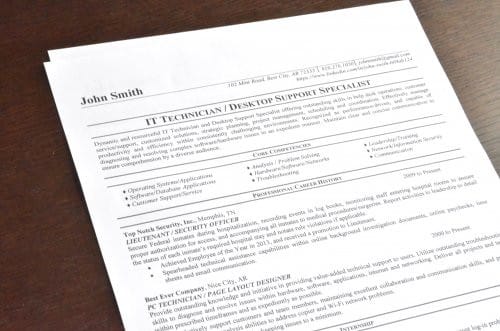Find a Job You Really Want In
Yes, paper is a good career path. Despite the movement away from paper, it’s still widely in use. And this isn’t just sheets of paper, either, but paper products, like napkins and plates, and packaging, such as cardboard. There are also various kinds of specialty paper and stationery that remain in use.
Paper production is an involved and complex process involving several different steps. Logging, manufacturing, processing, and sustainability efforts all come into play in the industry. All of these steps require highly educated and skilled workers as well, meaning that the industry is unlikely to end up fully mechanized.
Paper has myriad uses and the advantage of being biodegradable. The process of making paper is complex and requires several steps, rendering it an art form in many ways. And there’s more to the paper industry than just the manufacture of the paper itself.
10 of the Best Paying Jobs in Paper
As papermaking is a complex chemical process, there are several jobs in the paper industry that require higher education. There’s also the matter of the other requirements of industrial papermaking, having to do with industry and manufacturing in general. This results in several high-paid positions in the sector.
-
Average Annual Salary: $86,000
Packaging engineers are experts in packaging products. Paper and cardboard are used regularly as packing materials, meaning that you’ll often work with them. Packaging engineers mainly work with concepts and will test various packages to make sure they’re efficient, inexpensive, and meet the requirements.
-
Average Annual Salary: $81,000
Process engineers help select the optimal materials, chemical components, and design for the product. With an item like paper, they’re likely to alter the recipe as needed to get the exact sort of paper that suits the purpose best. They’re also involved in the testing and upgrading of systems in order to make sure it’s the best they can be.
-
Average Annual Salary: $80,000
Sawmills are where raw lumber is processed. A sawmill manager is responsible for the entire mill. They oversee the intake of lumber, making sure it’s properly cut and dried, as well as stored and shipped. Because of the large amount of responsibility, sawmill managers are well compensated and expected to have experience in the industry.
-
Average Annual Salary: $85,000
Chemical engineers are involved in the creation of new products and materials by way of chemical processes. They can be involved in food, drugs, petroleum, or chemical production. The majority of their profession is taking raw materials and processing them into other products.
-
Average Annual Salary: $104,000
As with most managerial roles, manufacturing managers are tasked with making sure that the work is done effectively and meets the company’s goals. It requires a lot of coordination due to the fact that the different workers are going to be experts at their jobs.
Manufacturing managers also need to be aware of industry standards, regulations, and safety requirements to make sure that their area meets all the requirements.
-
Average Annual Salary: $84,000
Forest engineers are mainly involved in the logging industry. Their job is to find the best and most efficient way to get an area logged. This means they have to know the trees, the equipment, and the topography of the area. And they must do all this while following local laws, regulations, and safety guidelines.
They’re also tasked with planning where to set up the equipment so that it’s ergonomic, effective, and safe.
-
Average Annual Salary: $60,000
While the general connotation of hygiene is cleanliness, its true definition is general health. Industrial hygienists focus on all aspects of health in an industrial environment. This includes cleanliness, sanitation, comfort, and trying to bolster mental health. They are responsible for coming up with plans to that effect and helping to implement them, as well as educating the workforce.
-
Average Annual Salary: $86,000
The main duties of this job are making sure that a product is feasible to make and that quality standards can be met or exceeded with the current materials and technology.
Quality assurance engineers help with overall production, but they are mainly focused on the product itself. It has to fit within cost parameters but also within the parameters for quality and the percentage of products that end up defective.
-
Average Annual Salary: $69,000
Environmental engineers’ main task is tackling environmental issues. They focus on pollution and the use of natural resources. Sustainability is the goal, so they try to come up with solutions where the land’s natural resources can be utilized without harming the environment.
This job requires a mix of knowledge of biology, ecology, engineering, and chemistry.
-
Average Annual Salary: $76,000
Manufacturing engineers focus entirely on the manufacturing process. They come up with the most cost-efficient way to manufacture the best product. It’s imperative they are familiar with the current rules and regulations and make sure that the manufacturing process follows them.
Most of these jobs require both higher education and experience to get, which is why they’re higher paid. That makes the above list a snapshot of where a career in the paper industry may peak. If you’re just looking to get started in the paper industry, then the below list is a better place to start.
10 Entry-Level Jobs in Paper
The paper industry has several different parts to it, meaning there are a few career paths you can take. That allows for a few different entries into the industry, which you can choose based on your interests and circumstances.
-
Average Annual Salary: $32,000
Paper makers process wood pulp into paper. Depending on the type of paper being made, it can involve different chemicals and amounts of pulp fiber and water, as well as how long it takes to dewater, dry, and finish.
Paper makers have to be familiar with the paper-making machines as well as the recipe for the type of paper they’re making and proper handling of chemicals and other materials.
-
Average Annual Salary: $64,000
If you love forestry and natural environments, then this position could be for you. Foresters care for and safeguard forests and parks. They will plant trees, collect data on the area, and keep track of when certain trees are ready for harvest.
They can also be expected to monitor the local wildlife population and help out in an emergency – such as if a hiker goes missing or is injured.
-
Average Annual Salary: $33,000
This job title is largely self-explanatory. Quality inspectors make sure that the products’ quality meets the requirements. They test durability, ease of use, and efficiency. They’re also expected to know both the manufacturer’s standards as well as the regulations on products and make sure that they’re both met.
The job requires taking a lot of measurements and testing products at random to make sure that quality is maintained.
-
Average Annual Salary: $36,000
Paper machines can serve a variety of functions, such as corrugating – to create corrugated cardboard – banding, wrapping, or laying paperboard or paper sheets. As an operator, your job would be to operate and maintain the machine.
You’ll need to understand its different settings and proper function, as well as how to keep it clean, lubricated, and operational.
-
Average Annual Salary: $61,000
Wood technologists are experts in wood. Many work in sawmills to determine the best way to cut, dry, and process the wood to create saleable products, such as plywood.
Wood technologists’ expertise is also called on in other areas to determine how wood is best utilized in building and manufacturing, for instance, and what types of wood are optimal for what’s being built.
-
Silviculturist
Average Annual Salary: N/A
Silviculture is the science of raising trees for the purpose of harvesting. Lumber is the most common product, but silviculturists may also raise trees and forests for the purpose of other raw goods, such as oils and maple syrup, but lumber is the most sought-after resource.
How much money you make is going to be heavily dependent on the market, what type of trees you’re cultivating, and how much land you have.
-
Average Annual Salary: $32,000
Forestry technicians’ main duties are in conservation. They collect and analyze samples to look for any threats to the forest they’re responsible for. Raising public awareness of environmental conservation is a large part of their job as well.
It’s a position that spends a lot of time outdoors and requires coordination with other departments, such as fire and police.
-
Average Annual Salary: $41,000
Someone in this position typically works at a sawmill. They sort incoming logs, looking for flaws – such as knots and boules – and decide what each log is suited for. They decide whether it should be ground up to make something else or if it should be dried and cured as a piece of lumber.
Lumber graders also have to be experts in wood grain and be able to tell how the piece of wood should be processed and handled.
-
Industrial Mechanic Apprentice
Average Annual Salary: $53,000
Also called millwrights, industrial mechanics maintain and repair industrial machinery. They will also install heavy machinery and move it if the need arises. They need to be able to read blueprints and sketches and be familiar with different types of metal and mechanisms.
This is a skilled trade that is often apprenticed, though some vocational schools will also offer classes.
-
Average Annual Salary: $68,000
Also called lumberjacks, loggers harvest trees. This is an extremely physical position that involves working outdoors in difficult conditions. Loggers are experts with both power and hand tools.
Cutting down trees is dangerous work, meaning that loggers must be knowledgeable about the trees they’re working with and the best way to cut them down safely.
Several of the above jobs don’t require a college degree, and most of the rest can be attained with an associate’s or a degree from a vocational school. That makes it easier to break into these careers, and they can also work as a springboard as you finish your degree.
Why Choose a Career in Paper?
The creation of paper has several different aspects to it, allowing you to choose which part of the industry you’d like to focus on. While the jobs are disparate, there are still some attributes that serve you well anywhere in the industry.
-
You’re interested in the industry. Paper production is heavily industrialized. The complexity of the process makes it impossible for it to be otherwise.
So, whether you work in a sawmill or a factory, or even just in getting the trees ready to be harvested, it helps to have some knowledge and interest in the industry and manufacture of the product.
-
Details are important to you. Paper is difficult to make, and different recipes can get very different results. But details also apply to logging, manufacturing, and machine operation.
-
You’re practical. All of these jobs have a strong aspect of practicality to them. Engineering is, in many ways, the science of the practical, and a lot of these other jobs require being focused on the practical aspects as well.
Education and Certification Requirements for a Career in Paper
The required education level varies greatly depending on what part of the industry you choose to be a part of. But if you’re looking to work in the paper industry or are curious if your degree will fit, here are some suggestions.
-
Industrial Technology. This is a sort of generic industry degree. It’s excellent if you’re looking to work in manufacturing.
-
Forestry. This focuses on forests, both management and husbandry. It’s an excellent choice if you want to be a forester or forestry technician.
-
Forest Engineering. If you want to be a forest engineer.
-
-
Engineering. This is a generic degree that can get you into different types of engineering.
-
Manufacturing Engineering. This is good if you want to be a manufacturing engineer.
-
Environmental engineering. If you’d like to be an environmental engineer.
-
-
Chemistry. This is also an excellent basis for manufacturing, as well as the sciences.
-
Chemical Engineering. If you want to be a chemical engineer.
-
There are several different types of certifications you can get both in the environmental and manufacturing fields. Certifications aren’t required for most of these jobs, but looking for ones that are in your field can help your prospects in your career.
Some things to consider:
-
Industrial Mechanics need to be licensed. This requires sufficient training and knowledge, which is typically learned through apprenticeship.
-
The majority of machine operators need a license.
-
Industrial hygienists need to be certified.
-
Loggers need safety training in most places – or an associate’s degree in forest harvesting.
What Do People Working In Paper Do?
People who work in paper are involved in the collection of raw materials for and manufacture of paper. The paper industry is split into different pieces: husbandry, collection, and manufacture.
Husbandry has to do with making sure that trees are sustainably harvested. That can take the form of a forester caring for a forest, a silviculturist growing them, or an environmental engineer considering the impact of harvesting.
Collection involves logging and processing the wood. Not all wood is good for paper. Loggers harvest the trees with the help of forestry engineers and technicians, and sawmills process the lumber.
The last stage is manufacturing. This is the process of taking the wood pulp and turning it into paper. This varies depending on the type of paper being made and whether it needs further processing.





